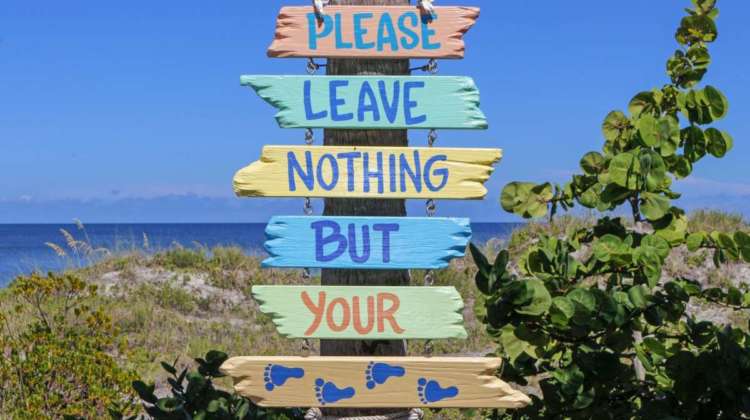
Societies and their economies around the world are shaken by the Covid-19 crisis. The upheavals in our lifestyles, our working conditions, our social relationships are radical. Many things seem to be falling apart and the future, at least two years from now, is extremely uncertain. And no one under these circumstances can predict with certainty what the world will look like after this storm. However, it looks like there will be profound changes on several levels.
One of the things above all that will change seems to be the way people travel and especially how they spend their holidays. This change is catastrophic in the short term for tourist destinations. But even in the medium term, the problems will be significant, even more so for mass tourism destinations, for which a major upheaval also seems to be occurring.
Coming to our case, we see that Paros, as a typical example of mass tourism destination and having an economy almost entirely dependent on tourism, will be hard hit, certainly this year but possibly also in the future. Critical questions arise. What can we do? How to minimize losses and find comparative advantages in the new landscape that will shape? How can we, to use a concept that has become commonplace, make the crisis an opportunity?
Of course, the problem concerns the whole country, where tourism accounts for around 20% of GDP, directly or indirectly. And for this reason, a systematic effort is made at the national level to reduce costs in the short and medium term and to widen the opportunities of the future. However, this will not be enough for the reboot, unless the local communities, as in Paros, with its governance and communities, take systematic initiatives in the right direction. But what is this direction?
The answer has been known for a long time. It is about switching to sustainable development. We have been talking about it for a long time, sometimes as an antidote to the earlier threat of overtourism, which has been temporarily at least averted by the pandemic, sometimes as the easy panacea that magically cures all ills and sometimes as a hollow political slogan. But sustainable tourism development is not something vague and nebulous. On the contrary, it is a concept based on defined principles, on a commitment to a solid strategic plan and clear objectives, on the mobilization of human and material resources, on constant improvements and evaluations and finally, on certification. So, if we really want to be in the midst of the developments of the new era, this whole context must materialize in specific stages. And that supposes an open discussion at the local level with the participation of the town hall, tourism professionals and civil society through its collective bodies. A discussion which will not stop at good intentions, but which will advance in successive stages towards the achievement of the objectives which will be set.
The need to turn to responsible tourism in a sustainable development approach pre-existed the pandemic, as a condition for the protection of unique places, like Paros. The new reality makes this change even more necessary, as well as for the maintenance of economic and social prosperity in the new era. The trend towards this direction has been visible globally for quite some time. But in our country too, the general context seems favourable and the tools exist. The Ministry of Tourism recently signed a memorandum of cooperation with the Global Sustainable Tourism Council (GSTC), for its systematic promotion among Greek destinations and tourism professionals. Those responsible for the central political agenda stress its importance, as well as the priority of protecting the country’s unique environment. It is therefore in many ways the moment, it is the opportunity now and it must not be lost, we must use the existing dynamic.
Thus, in addition to the necessary measures which have already been taken to ensure the best possible hygienic conditions that will allow the tourism market to function to a certain extent this year, it is necessary to immediately initiate a dialogue on how to focus the island on sustainable development. Unfortunately, times are not conducive to physical gatherings which would be ideal for discussing such important issues. But we can do it with video conferencing technologies available today. We will certainly find a way to do it.
Nikos Malatestas

Leave a Reply